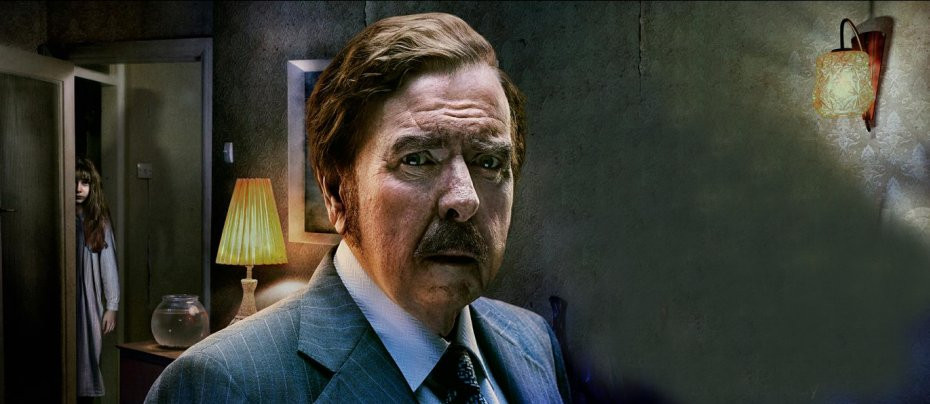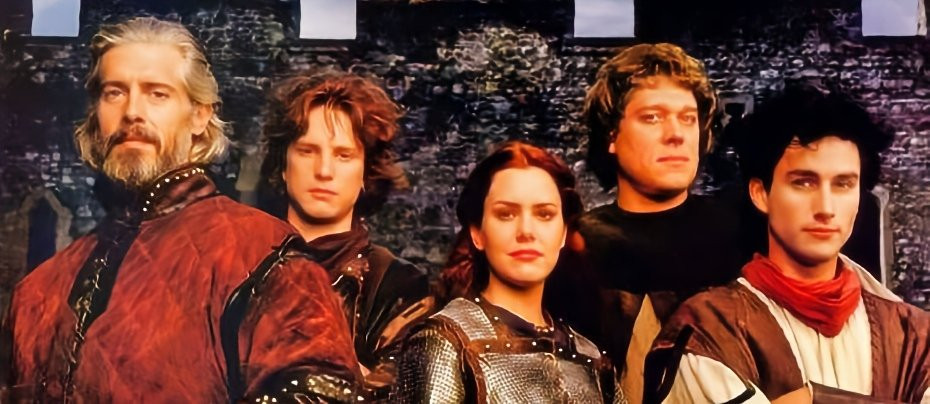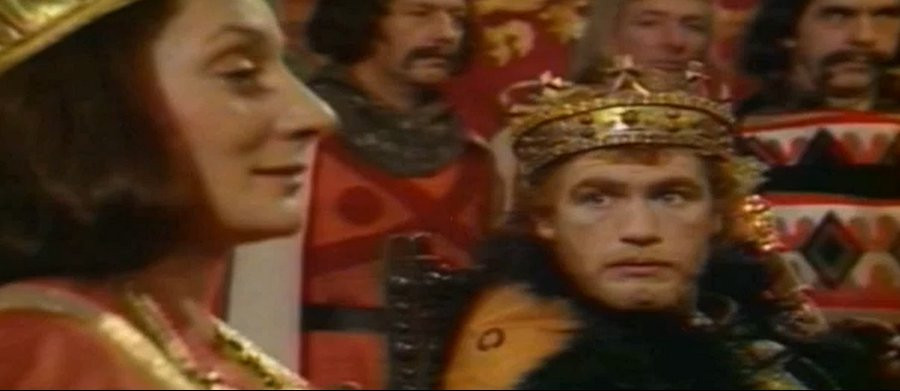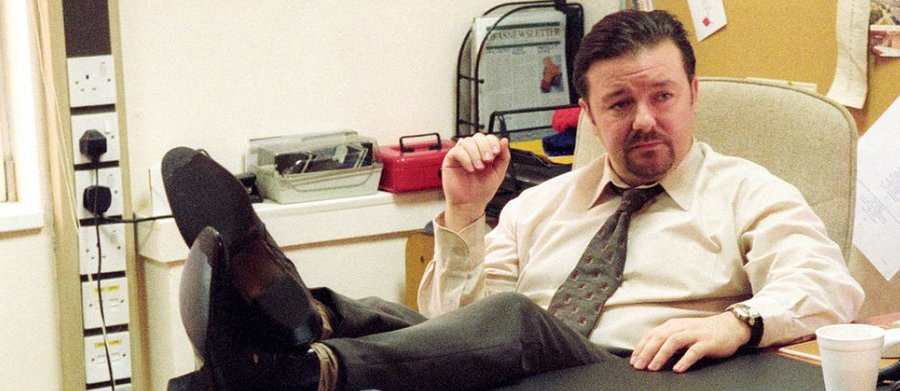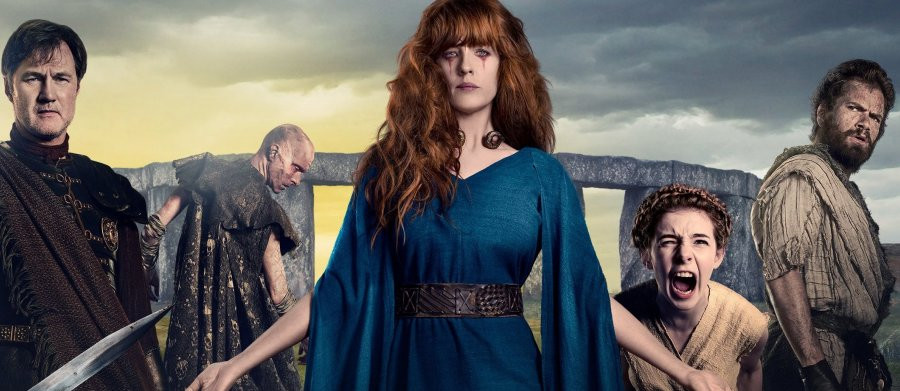
Britannia
2018 - United KingdomThis is intended as a fairly spoiler-light overview of the first season of Britannia, a historical fantasy based very loosely on the Roman Invasion of Britain in 43 AD.
History tells us that the initial campaign was in fact little more than a textbook example of the smooth efficiency of the Roman system. Although Britannia is correct in showing the superstitious legionaries as mutinous at the thought of crossing the Channel, the Roman high command actually had very good intelligence of what to expect thanks to extensive trade and diplomatic ties. Indeed, they were already playing the British tribes off against each other, following their longstanding policy of divide and rule. Once they landed, several local tribal rulers, seeing four full legions on their doorstep, made the sensible decision to join them against other Britons who were in any case their hereditary enemies. They were rewarded well for their wisdom in making a fairly obvious choice, as the remains of the magnificent Roman style palace built for one of them by the Roman army at Fishbourne testify to this day.
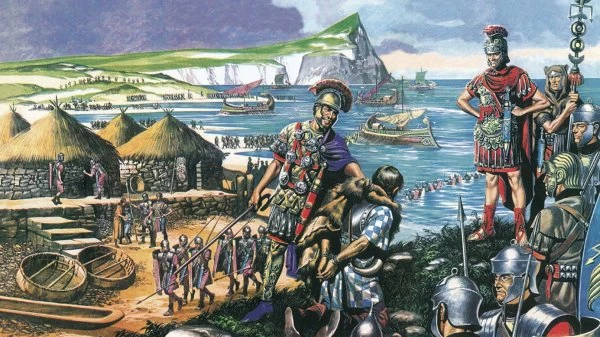
Resistance in Lowland Britain therefore collapsed quickly. There were sharply contested crossings of the Rivers Medway and Thames, and apparently some very brief siegework, but no decisive pitched battle was required. By 47 AD, the Romans had established a frontier running more or less from Devon to the borders of what is now Wales to the foot of the Pennines, and controlled everything South and East of it, either directly or through local "client Kings." It was only at this point that the fighting got considerably more difficult for them, and several decades were necessary to subdue the Welsh tribes and advance into what is now Scotland. There was, of course, no notion of Wales or Scotland at this point - or even of Britain itself as a political entity until the Romans established it.
The Roman commander during this first phase was Aulus Plautius, the first Imperial Governor of the new Province of Britannia. An aristocrat to whom high politics had been the family business for at least three generations, he was just one of several highly competent generals available to the 'Princeps' or Emperor Claudius - of I, Claudius fame - to lead the first wave of the great military prestige project of his reign. Plautius was selected because he was a sensible subordinate, not an egotist like Julius Caesar. After his British campaign, he seems to have lived out his days held in very high esteem in Roman society, a sound Establishment man.
These are the facts, and it would have been quite easy to construct a credible human drama out of no more than what history offered on a plate: we have the clash of cultures, patriotic resistance on the part of the British High King Caractacus, political scheming on the part of his reluctant Sub-Kings, higher politics driving the whole thing back in Rome, and the despair of ordinary Britons caught in the middle. However, that was not enough for writers Jez and Tom Butterworth who chose instead to turn this fairly routine campaign into a Cosmic Struggle between supernatural powers of Good and Evil.
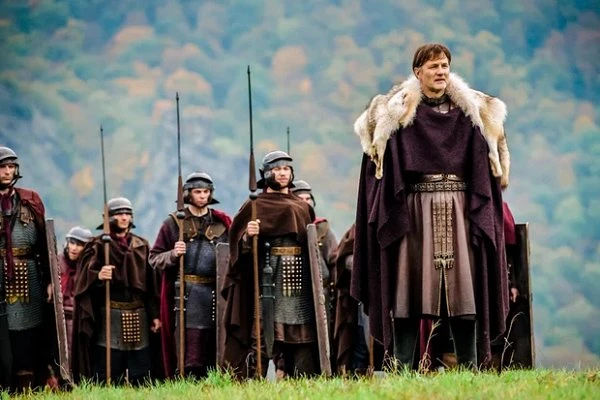
The Butterworths have form in this regard. Some years ago they adapted another Roman-themed project that expanded into something bigger. This was the unfairly underrated 2007 feature film 'The Last Legion,' which, if one can ignore a badly miscast Colin Firth in the lead, was actually a colourful chunk of entertainment that deserves a higher reputation. It shares with Britannia a tendency to play fast and loose with history but on the basis of a solid foundation of fact - and a fascination with Druids.
That we know almost nothing about the Druids, apart from what their enemies happened to write down, has always given modern writers a lot of room to play about with them. The Butterworths make the most of this, but they do tell one truth in Britannia: the Celtic pagan religion was a bloody business, not some 1960s New Age folk festival. The choice of Donovan's 'Hurdy Gurdy Man' as theme song for this season therefore seems a bit odd.
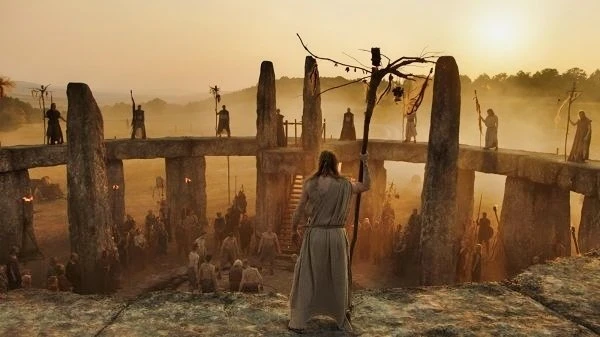
Anyone with a working knowledge of First Century Roman history - see your reviewer's biographical note below - will be wincing every few minutes at their treatment of what we do know about both Romans and Britons. There is some name checking of known individuals, military formations, and tribes, but there are a lot of horrible mistakes (Cairo was founded almost a thousand years later, lads). The tone is set when we hear the name of a real life character who was later of immense historical significance, and who was indeed in Britain around this time: this sets up certain expectations, which are demolished quite brutally. We are not in Kansas anymore, or First Century Roman Britain either.
Filming in Wales gifts the landscape an appropriately "Celtic" feel and, together with locations in the Czech Republic, gives the whole production a pleasing visual aesthetic. However, it is a bit incongruous to see the Cantii tribe based in a mountain fortress when, as their name suggests, they were actually located in Kent.
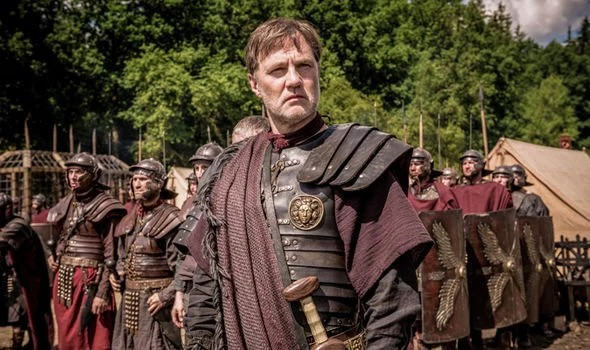
Yet the story remains compelling in spite of all the absurdity, thanks mainly to a strong cast and characters that keep us guessing. The bedrock of the whole project is the talented David Morrissey as a fictional version of Aulus Plautius. He has little in common with his historical counterpart but is still much closer to the reality of a hardbitten Roman 'vir militaris' than Colin Firth. Morrissey has a particular gift for villains with a thin magnetic layer of charm, most memorably in The Walking Dead. In Britannia we know from his opening scene on that this Aulus Plautius is a hard man, but he keeps hinting at hidden depths. At one point, he tells a very dark story about himself, and it is tantalising that we never hear the conclusion, which might have revealed his true nature. As with many high functioning psychopaths, it is only gradually that we are forced to accept that it may be that he really is simply bad all the way through.

Kelly Reilly shines as a spiky Cantii Princess set up as his principal adversary, apparently a proto-Boudicca. Such is her presence that it is only when one thinks about it afterwards that one realises that her character arc makes very little sense. Ian McDiarmid is suitably regal as her father, but, alas for the Britons, far from the Emperor Palpatine when it comes down to it. Julian Rhind-Tutt is his son and heir apparent: channelling Bill Nighy, he seems far too reasonable to be a Celtic Warrior-Prince, but his scheming wife, played without reserve by Annabel Scholey, more than makes up for his lack of aggression and ambition. It is not entirely clear whether she is his wife or his ex-wife, for she is now married, or also married, to an alpha male Gaul, played by French actor Stanley Weber, complete with modern French accent, but still feels entitled to bully poor Prince Bill Nighy and sees him as her path to the Throne.
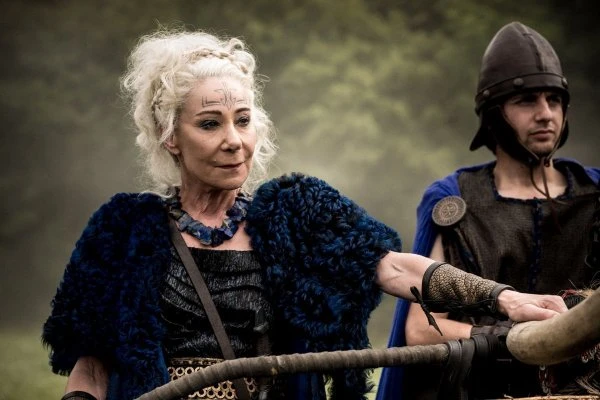
Even more unrestrained is Zoe Wanamaker, who tears into the role of the Queen of the Regni, neighbours and traditional enemies of the Cantii in true Celtic style. Watching her enjoy herself is one of the most enjoyable aspects of Britannia. She relishes lines that would be ludicrous coming from almost anyone else, proclaiming during a long siege how she does not mind the cold because revenge makes her feel toasty. Joe Armstrong, from the BBC Robin Hood, is her son who is a couple of points down on the manliness scale for reasons that are not entirely his fault.

Mackenzie Crook is suitably ambiguous as the Chief Druid. We are never entirely certain if he is a charlatan or the repository of a very ancient power. For all his talk of higher things, he is not above a little politicking of his own, and he is surprisingly quick to accommodate Plautius. Is he trimming his sails to the prevailing winds or does he really see a bigger picture? The historical Druids were always, it should be noted, fanatical leaders of Anti-Roman resistance and received no quarter in their turn.
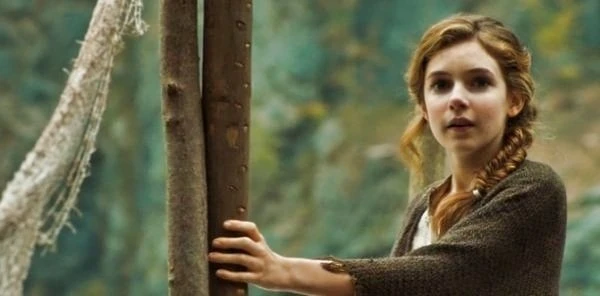
Danish actor Nikolaj Lie Kaas is convincing as an outcast Druid who seems to be suffering from clinical schizophrenia, or at least severe mood swings. He is the unlikely and rather erratic protector of a homeless girl played by Eleanor Worthington-Cox, who has a thoroughly bad time. Already a very experienced actress, Worthington-Cox is a refreshing young heroine who is sympathetic without being a victim and strong without being ostentatiously tough, rising above both traditional stereotypes and recent clichés.
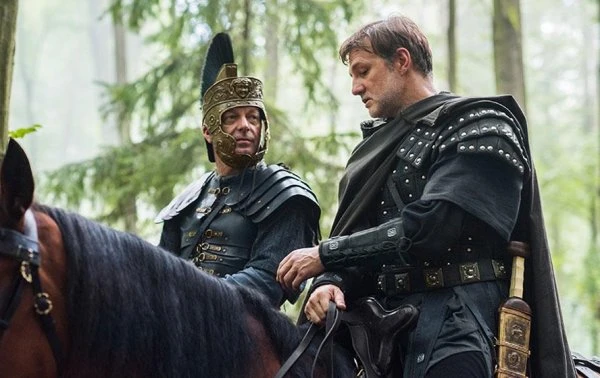
Hugo Speer, well cast as Captain Treville in The Musketeers, is also good casting as Plautius' overly loyal Camp Prefect or Chief of Staff. Laura Donnelly - Mrs Jez Butterworth in real life - steals her episodes effortlessly as a Northern Irish bounty hunter who cannot give a fig about anything or anyone, and who really deserves her own show.
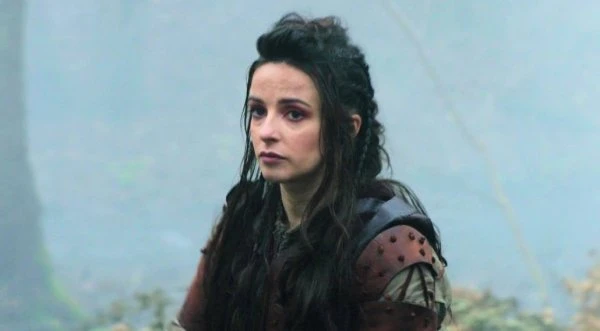
There is obviously much to enjoy here, and the season as a whole is indeed very entertaining and easy to watch. It is therefore strange that ultimately it feels rather unsatisfying. Or, to put it another way, why is your reviewer, who binge watched all nine episodes of Season One over two evenings, in no hurry to buy Season Two?
It is largely because a lot of interesting plotlines were set up over the season but it ended with most of them not really going anywhere. It was particularly annoying how one major character was thrown away, together with the story arc that had been built around that character in which the viewer had been induced to invest. Since Game of Thrones, a lot of series have inserted similar shocks for the sake of shocks, not really understanding that in Game of Thrones, at least in its earlier seasons, the shocks were not just there for dramatic effects but were necessary to carry the plot forward. The one in Britannia just seems gratuitous. Meanwhile, other characters were not really developing, nor were we discovering more about them. If, as is no doubt the intention, these are the very issues to be addressed in the next season, we were given nothing in the first season finale that left us eager to find out.
Review: John Winterson Richards
John Winterson Richards is the author of the 'Xenophobe's Guide to the Welsh' and the 'Bluffer's Guide to Small Business,' both of which have been reprinted more than twenty times in English and translated into several other languages. He was editor of the latest Bluffer's Guide to Management and, as a freelance writer, has had over 500 commissioned articles published.
He is also the author of ‘How to Build Your Own Pyramid: A Practical Guide to Organisational Structures' and co-author of 'The Context of Christ: the History and Politics of Rome and Judea, 100 BC - 33 AD,' as well as the author of several novels under the name Charles Cromwell, all of which can be downloaded from Amazon. John has also written over 100 reviews for Television Heaven.
John's Website can be found here: John Winterson Richards
Seen this show? How do you rate it?
Seen this show? How do you rate it?
Published on July 1st, 2021. Written by John Winterson Richards for Television Heaven.


